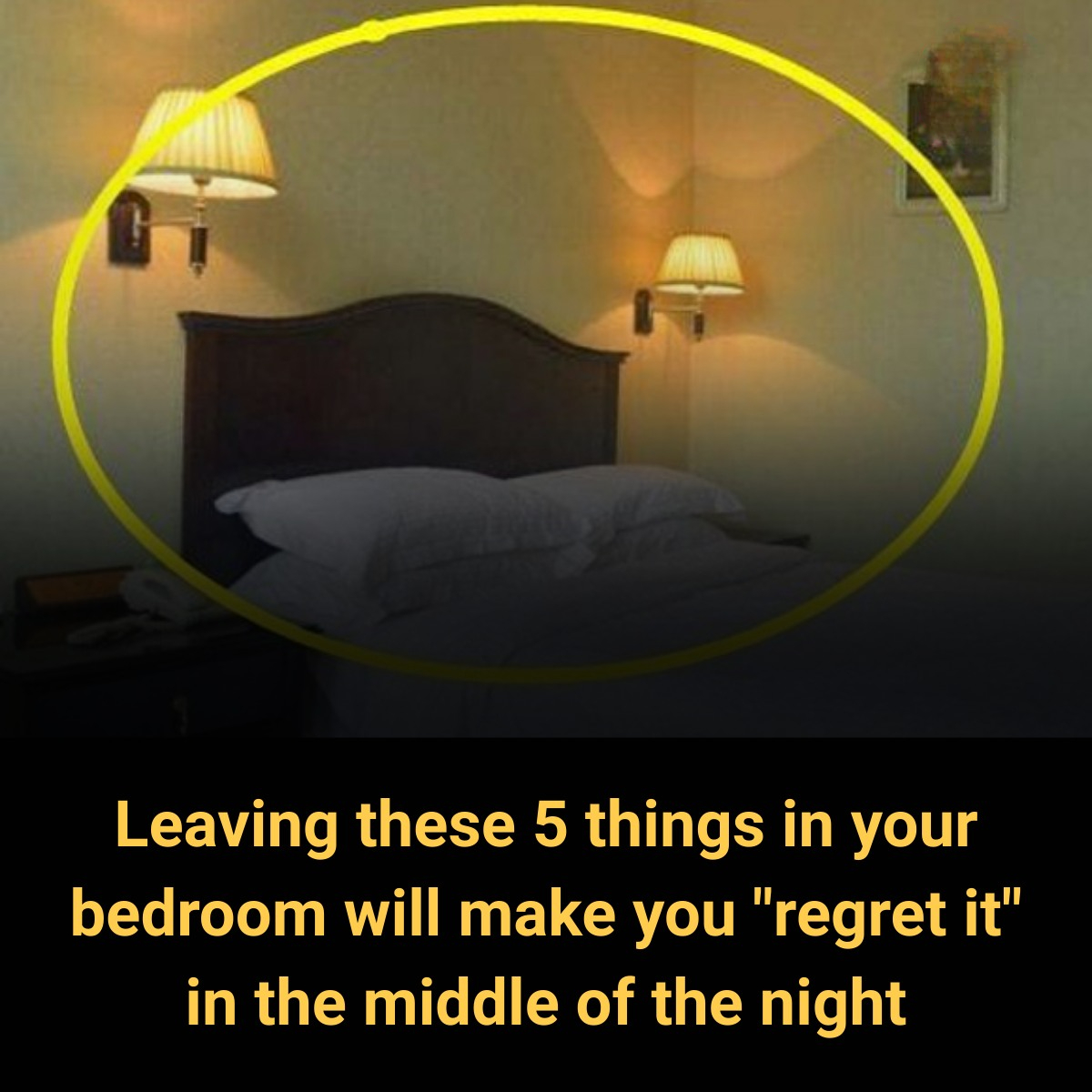Your bedroom is supposed to be your sanctuary, a peaceful space where you unwind, relax, and get the rest your body and mind need to recharge. But even if you’ve invested in a comfortable mattress and blackout curtains, certain items you leave in your bedroom can silently sabotage your sleep and leave you regretting it in the middle of the night.

You might not even realize how much these seemingly harmless things are affecting your rest until you’re tossing and turning at 3 a.m., wondering what went wrong. Let’s dive into five specific things you should seriously consider removing from your bedroom if you want better sleep, improved mental clarity, and fewer middle-of-the-night disruptions. First up, electronic devices—especially smartphones, tablets, laptops, and televisions—are some of the biggest culprits when it comes to sleep disruption. These devices emit blue light, which has been shown to interfere with your body’s natural melatonin production. Melatonin is the hormone responsible for making you feel sleepy and helping you stay asleep through the night. By staring at a screen before bed, you’re essentially telling your brain to stay alert.
On top of that, notifications, buzzing, and even the temptation to check messages or scroll social media can all lead to fragmented sleep. Instead of using your phone as an alarm clock or watching TV in bed, try placing devices outside your bedroom and opting for a traditional alarm clock or a good book to help wind down. Second, clutter is more than just an eyesore—it can be a subtle source of stress. When your bedroom is filled with piles of laundry, papers, unused exercise equipment, or random items that don’t belong, your brain registers this as chaos. It’s harder to mentally disconnect and relax in a space that feels disorganized. Studies have shown that physical clutter can increase feelings of anxiety, which certainly won’t help you sleep any better. Make it a habit to regularly declutter and organize your room so it feels calm and inviting.
Keeping only what you need and love in your sleeping space goes a long way toward fostering restful energy. Third, work-related items should be kept far from your bedroom. While it may be convenient to bring your laptop or files into bed for a few last-minute emails or to prep for tomorrow’s meeting, doing so creates a strong psychological link between your bedroom and your job. This undermines the brain’s ability to associate your bed with relaxation and sleep. Blurring the line between work and rest makes it harder to switch off at night, and you may find yourself mentally replaying the day or stressing over your to-do list. Create clear boundaries by keeping your work in another room and using your bedroom strictly for sleeping and unwinding.
Fourth, avoid keeping food and drinks—especially snacks or sugary beverages—near your bed. While it may seem convenient to have a late-night snack or a soda nearby, it can quickly backfire. Food crumbs can attract insects or pests, and certain snacks may upset your digestion, leading to discomfort while you try to sleep. Additionally, sugary or caffeinated drinks can cause restlessness or bathroom interruptions during the night. It’s best to keep food consumption limited to the kitchen or dining area and avoid eating right before bed. Lastly, while it might surprise you, even exercise equipment like a stationary bike or dumbbells can have a psychological effect on your ability to wind down. Seeing workout gear right before you go to sleep may subconsciously remind you of unfinished tasks or goals, which can add to nighttime anxiety. Plus, a room packed with large equipment can make your bedroom feel cramped and less like a relaxing retreat. If you can, move that gear to a separate area of your home so your bedroom stays peaceful and free of distractions. By removing these five things from your bedroom, you’re creating a space that promotes true rest and recovery. The goal is to build an environment that signals to your mind and body that it’s time to let go of the day and recharge. Your sleep is essential, and protecting it starts with a cleaner, calmer, and more purposeful bedroom space.





